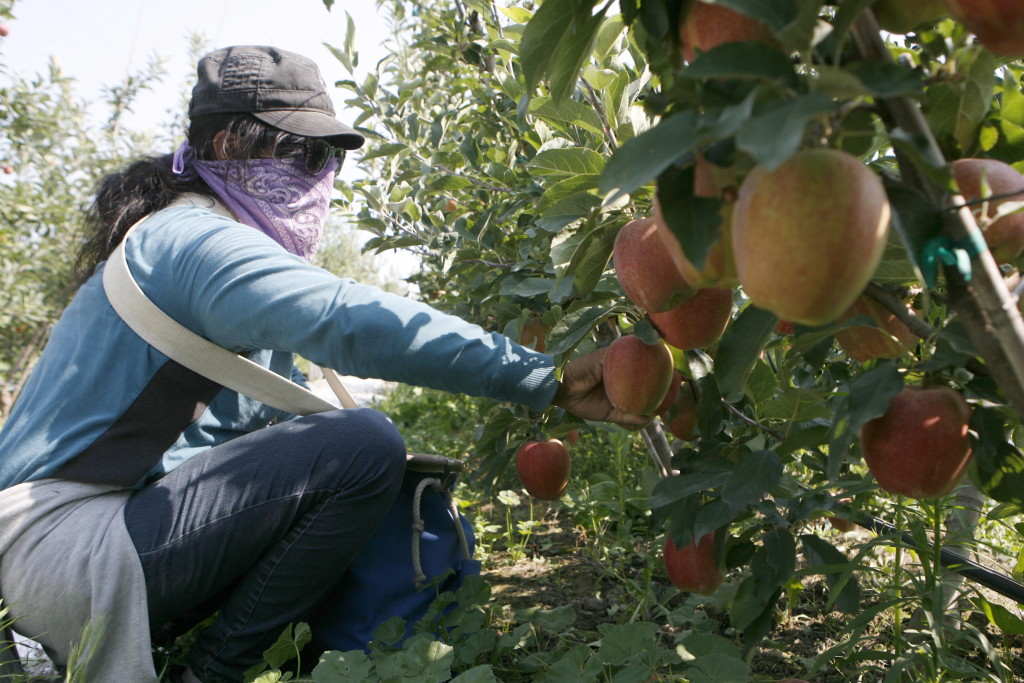Apple growers are now eligible for financial help through the Coronavirus Food Assistance Program, the U.S. Department of Agriculture announced Thursday.
The USDA revised its rules so that apple growers are eligible for direct payments because they experienced a sales price loss of at least 5% when selling products between Jan. 15 and April 15.
The USDA had previously said apple growers were not eligible based on data it collected at a dozen markets at major transportation hubs.
Last month, the U.S. Apple Association and several grower groups, including the Washington Apple Commission and the Washington State Tree Fruit Association, provided extensive data that documented a much more substantial price loss.
The industry argued the market data didn’t fully reflect the prices of apples as most product is sold outside those markets, namely directly to retailers.
Based on that data, the USDA estimated the average price drop during the four-month period to be at 10.9%, well above the 5% loss required.
Apple growers can receive 5 cents a pound in direct payments.
“It’s big news today,” said Mark Powers, president of the Northwest Horticultural Council, the Yakima-based organization that advocates for the region’s tree fruit industry, including apple growers. “It’s a huge win for industry and apple growers.”
Direct payments will help apple growers recoup losses from earlier in the year, said Jon DeVaney, president of the Washington State Tree Fruit Association. That will put them in a better cash flow position as they continue tending to the apple crop that will be harvested in the next few months.
Apples and potatoes
Both U.S. Rep. Dan Newhouse and Sen. Maria Cantwell, in a letter earlier this week on behalf of the Washington state congressional delegation, urged Agriculture Secretary Sonny Perdue to revise price criteria that would qualify apple and potato growers for direct payments.
“Apples and potatoes are two huge economic drivers for Washington state, and our producers have experienced significant damages,” Newhouse, a Republican, said in a statement Thursday. “Thank you, Secretary Perdue, for listening to our concerns, making these adjustments, and prioritizing America’s agriculture industry during these difficult times.”
Cantwell also praised Perdue and the USDA for its revision.
“I’m glad USDA has listened to Washington state farmers and made some of Washington’s most valuable crops eligible for the coronavirus assistance they deserve,” Sen. Cantwell, a Democrat, said in a statement.
Apple growers previously could apply for direct payments under other criteria. Still, Powers said it was unlikely that growers would receive payments because it would require growers to document spoilage loss or loss of unsold fruit that remained. Neither scenario would likely apply to stored apples sold during the first four months of 2020.
Those criteria were aimed at growers that grow commodities that are harvested once a year and could not be stored, Powers said.
“Our situation is very different,” he said. “We market over a year-round period.”
Weekly harvest shipments peaked in mid-March and have been declining since then. For the week ending July 5, 2.7 million 40-pound boxes were shipped domestically and internationally, compared to nearly 3.9 million boxes for the week ending March 22, when weekly shipments were at their highest.
Fewer apples being shipped means more apples in storage.
While there are more apples in storage than the industry would like this time of year, it’s not as bad as it could be, DeVaney said.
Buying programs, both as part of coronavirus relief efforts as well as part of programs to help growers impacted by trade issues, have helped, he said.
As of July 6, about 83.6% of the 2019 crop has been sold, compared to 84.7% this time last year.
Powers said there are efforts by industry officials to extend eligibility for direct payments through the coronavirus food program to other crops that may still be impacted by COVID-19, such as cherries. Congress would need to pass additional legislation that would allow USDA to extend the program’s parameters and funds.
This year’s cherry crop, now being harvest throughout the Northwest, has been adversely affected by weather, but Powers said the industry is still examining what impact COVID-19 has had on the crop so far.



